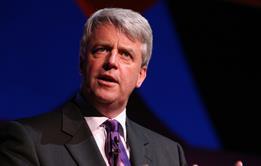The Conservatives’ draft manifesto on health offers subtle changes to the party’s health policies.
On key issues such as targets and an independent NHS management board, the ground appears to be shifting.
Labour’s targets have provided the Conservatives with years of ammunition
The most obvious change compared with previous policy statements is to the commitment to create more single rooms. Last year the Tories promised to deliver 45,000 extra rooms; this has now given way to increasing single rooms as resources allow. Given the financial pressures on hospitals this is the right thing to do.
More intriguing is the job description outlined for the much hyped independent board. Its role appears to have been watered down from its 2007 incarnation of being responsible for commissioning services, allocating resources and improving patient outcomes. Now the emphasis is on allocating resources around the country and improving access to services.
Hitherto the board has been portrayed as having independent control of the NHS, with ministers merely setting broad goals. The scaled back ambition in the draft manifesto leaves a lack of clarity about the respective roles of the board and ministers.
Labour’s targets have provided the Conservatives with years of ammunition, and they had pledged to scrap them. This document gives them room for manoeuvre, only promising to dump “politically motivated process targets that stop health professionals doing their jobs properly”.
A Conservative government which allowed waiting lists to spiral would be hammered by a Labour opposition. Tory claims to be the party of the NHS would be left in tatters. Mechanisms such as patient choice would not compensate for scrapping the 18 week referral to treatment target. If the Tories come to power, expect a few targets to have slipped their noose. They might fly under a flag of convenience such as standards, but political reality dictates that a way will have to be found to keep them.
Follow me on Twitter: RichardVizeHSJ
NHS at centre of Tories’ election campaign

The Conservative Party has placed the NHS at the centre of its newly launched election campaign with a “realistic” draft health manifesto that scales down several earlier pledges.
- 1
- 2
 Currently
reading
Currently
reading
Tories’ tempered pledges show the effect of political realities































No comments yet